A project of:
| Centre for Human Rights | and the Geneva Academy | in collaboration with the Office of the High Commissioner for Human Rights | |
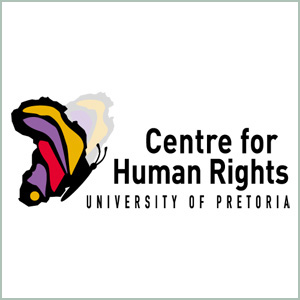 |
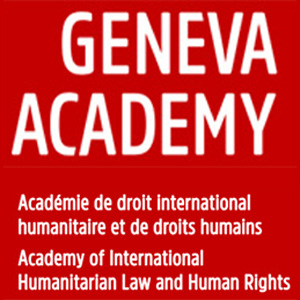 |
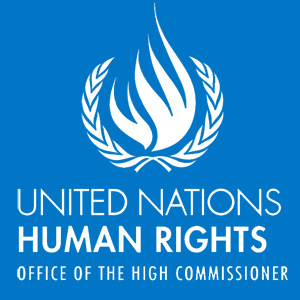 |
|
working with
| Global Campus of Human Rights | Harvard Law School Advocates | University of Bristol Law School | The Danish Institute for Human Rights |
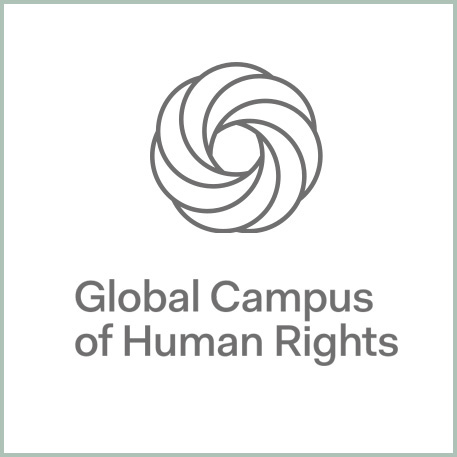 |
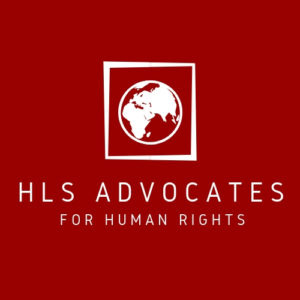 |
 |
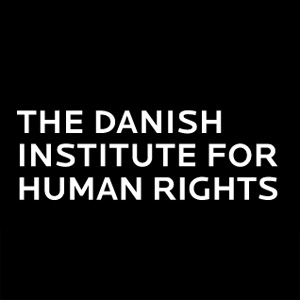 |
The ‘first stop shop’ for research on the impact of the treaty system worldwide
As was discussed earlier, the Pretoria UN human rights treaty system impact study is a comprehensive and long term research project aimed at making the United Nations treaty system as a whole more visible – not only what happens in Geneva, where the treaty bodies are based, but also the rest of the iceberg, reflecting the difference that it makes on the ground.
The database is intended to be a first stop to guide researchers to locate the relevant documentation that allows them to follow the path of impact from the source (the treaty system in Geneva) to the intended point of impact on the ground (did it affect the conduct of those actors in the country in question who can affect change?). Or, to find that the patch of impact was blocked somewhere along the way, and to ask why. It provides a starting point for research, as opposed to the final word.
The ‘Impact database 2020 +’ consists of a set of tables in the form of spreadsheets that cover the impact of the treaties and their monitoring bodies in each one the United Nations (UN) members states. The database will be built up (and be updated) over the years, but when fully operational, it will cover the 193 UN member states, reflecting the impact of the 10 treaties in each of these countries, meaning there will be 1 930 tables, containing links to documents on the UN and local level reflecting direct, material impact. The tables will follow the following pattern:
Example of table covering a fictitious country
[module-714]
With five columns covering the treaty system in Geneva, and eight potential targets of impact on the ground, there will be 40 boxes on each table. Given the fact that there will be 1 930 tables with 40 boxes each, there will be approximately 77 000 boxes in the entire database. Each box in turn will identify an example of impact (e.g. the name of a law adopted to give effect to a treaty; provide a reference to the source showing the evidence that the document was accepted in response to the treaty system (e.g. the relevant part of a white paper making this point); and some commentary. Or, tellingly, many boxes will be empty, showing that no evidence of direct impact could be found.
Imagine, for example, that someone wants to establish to what extent the treaty system has had an impact on female genital mutilation (FGM), or on the death penalty, in a particular country, or region, or worldwide. By using the database, it will be possible first to locate the documents providing evidence on all the instances where there is documented evidence of a pathway of impact by the treaty system. Did change come, for example, through the concluding observations, or were the views more effective; and on the domestic level, did the treaty system have more of an impact on the laws, or did judicial decisions effect the change? And, if change did not come, where did it fail?
Establishing such a database is clearly a large undertaking. Over the past 60 years, millions of documents – some in hard and some in soft copy – adopted at the UN or on the local level worldwide came into existence which contain evidence about impact. No researcher working on their own has the capacity to get the locate all such instances of impact, allowing them to identify the aspects in which they are interested as a starting point for further research. The database will bridge this gap.
The database will draw on a number of sources. The first is the documents contained in the various databases of the UN in Geneva. To access this information, we are developing an algorithm that will search and classify the information available in Geneva, and put each piece of information showing impact in the corresponding box on the right table.
In the second place, the database will reflect the documents that are to be found only on the domestic level - in the case records in court buildings, draft bills in parliaments, and minutes of meetings in governmental offices etc. To access these documents, we are working with students from different countries who are collecting the relevant information in their home countries, and who will likewise put a reference to each document that they locate in the appropriate box in the spreadsheet.
Thirdly, we already have the domestic level documentation for 20 countries. This we collected when working on the two books covering those countries, mentioned above. Those documents are currently being uploaded to the appropriate boxes in the database.
Fourthly, a number of specialised databases are already available online, containing the country-level information required to populate “Impact database 2020+’ in respect of particular human rights issues. One such database for example deals with police use of force, another with peaceful assemblies, and a further one with the death penalty. We will be working with as many of these databases as possible to exchange information.
To help populate the database in a crowd-sourcing manner, all members of the public will be encouraged to send information – victims of human rights violations, lawyers, NGOs, academics and others – that will also be uploaded.
Starting with only a few countries and a couple of treaties, the information from these sources will be combined in ‘Impact database 2020+’ which will grow over the years and be kept up to date, allowing the big picture to emerge over time.
We believe that doing this will allow a much fuller understanding of the treaty system to emerge – not just what happens in Geneva, but also important aspects of the vast and largely unknown dynamics through which the system as a whole makes a difference, or fails to do so, is all communities in the world. It will now be easier, based on evidence as opposed to anecdotes, to learn lessons from mistakes and successes.
The treaty system has an important normative function, and gives contents to human rights standards. That is in itself an important role. But the further question is to what extent they have consequences on the ground. Human rights without consequences are at best what be called ‘weak rights’, or empty aspirations. The system as a whole, including the normative function, is undermined. Those inside the system become despondent, and those outside turn to alternative ways to address their problems. For the international human rights system to be a system of ‘strong rights’, we need to be able to show it is not only a good idea - it has real life consequences, and those consequences must be maximised.
The treaty system is the backbone of the human rights order. All countries in the world are part of it, and have assumed legally binding obligations under the treaties. A total of 172 international experts from all parts of the world serve in the treaty bodies. It has a well-established and nuanced jurisprudence. The best way to ensure the human rights project thrives, and even survives in the long run, is to strengthen the treaty system. The goal of the ‘Impact database 2020 +’ is precisely to bring new life into the treaty system, by makings it full reach visible. The database is needed to allow the weak points of the system to be identified and improved, synergies between its various parts and with domestic systems to be developed, what works in one part of the system be emulated in other part, and to celebrate the often untold success stories of the human rights treaty system.
Guidelines to contributors
Download guide for contributors
Virtual Launch
Watch virtual launch on YouTube
List of countries and researchers
| Country | |
| Afghanistan | |
| Albania | |
| Algeria | |
| Andorra | |
| Angola | |
| Antigua and Barbuda | |
| Argentina | Global Campus |
| Armenia | |
|
Australia |
Covered in the 2021 book |
| Austria | |
| Azerbaijan | |
| Bahamas | |
| Bahrain | |
| Bangladesh | |
| Barbados | |
| Belarus | |
| Belgium | Geneva Academy; Maxime Nijs (CAT), Zachary Thomas (ICCPR) |
| Belize | |
| Benin | |
| Bhutan | |
| Bolivia (Plurinational State of) | |
| Bosnia and Herzegovina | |
| Botswana | |
| Brazil | Covered in the 2021 book |
| Brunei Darussalam | |
| Bulgaria | |
| Burkina Faso | |
| Burundi | |
| Cabo Verde | |
| Cambodia | |
| Cameroon | |
| Canada | Covered in the 2021 book, and by Emily Williams |
| Central African Republic | |
| Chad | |
| Chile | |
| China | |
| Colombia | Covered in the 2021 book |
| Comoros | |
| Congo | |
| Costa Rica | |
| Côte D'Ivoire | |
| Croatia | |
| Cuba | |
| Cyprus | |
| Czech Republic | Covered in the 2021 book |
| Democratic People's Republic of Korea | |
| Democratic Republic of the Congo | |
| Denmark | |
| Djibouti | |
| Dominica | |
| Dominican Republic | |
| Ecuador | |
| Egypt | Covered in the 2021 book |
| El Salvador | |
| Equatorial Guinea | |
| Eritrea | |
| Estonia | Covered in the 2021 book |
| Eswatini | |
| Ethiopia | |
| Fiji | |
| Finland | Covered in the 2021 book |
| France | |
| Gabon | |
| Gambia (Republic of The) | |
| Georgia | |
| Germany | Gina Spieler, student at Harvard Law School |
| Ghana | |
| Greece | |
| Grenada | |
| Guatemala | |
| Guinea | |
| Guinea Bissau | |
| Guyana | |
| Haiti | |
| Honduras | |
| Hungary | |
| Iceland | |
| India | Covered in the 2021 book, and Kajal Parwani, Geneva Academy |
| Indonesia | |
| Iran (Islamic Republic of) |
|
| Iraq | |
| Ireland | University of Bristol, and by Emily Williams |
| Israel | |
| Italy | |
| Jamaica | Covered in the 2021 book |
| Japan |
Covered in the 2021 book |
| Jordan | |
| Kazakhstan | |
| Kenya | Melissa Mungai, University of Pretoria |
| Kiribati | |
| Kuwait | |
| Kyrgyzstan | Harvard Law School Advocates for Human Rights |
| Lao People’s Democratic Republic | |
| Latvia | |
| Lebanon | |
| Lesotho | |
| Liberia | |
| Libya | |
| Liechtenstein | |
| Lithuania | |
| Luxembourg | |
| Madagascar | |
| Malawi | |
| Malaysia | |
| Maldives | |
| Mali | |
| Malta | |
| Marshall Islands | |
| Mauritania | |
| Mauritius | |
| Mexico |
Covered in the 2021 book |
| Micronesia (Federated States of) | |
| Monaco | |
| Mongolia | |
| Montenegro | |
| Morocco | |
| Mozambique | |
| Myanmar | |
| Namibia | |
| Nauru | |
| Nepal | Covered in the 2021 book |
| Netherlands | |
| New Zealand | |
| Nicaragua | |
| Niger | |
| Nigeria | |
| North Macedonia | |
| Norway | |
| Oman | |
| Pakistan | Seher Aftab and Fer Ghanna, students at Harvard Law School |
| Palau | |
| Panama | |
| Papua New Guinea | |
| Paraguay | |
| Peru | |
| Philippines |
Covered in the 2021 book |
| Poland | |
| Portugal | |
| Qatar | |
| Republic of Korea | |
| Republic of Moldova | |
| Romania | |
| Russian Federation | Covered in the 2021 book |
| Rwanda | |
| Saint Kitts and Nevis | |
| Saint Lucia | |
| Saint Vincent and the Grenadines | |
| Samoa | |
| San Marino | |
| Sao Tome and Principe | |
| Saudi Arabia | |
| Senegal |
Covered in the 2021 book |
| Serbia | |
| Seychelles | |
| Sierra Leone | |
| Singapore | |
| Slovakia | |
| Slovenia | |
| Solomon Islands | |
| Somalia | |
| South Africa |
Covered in the 2021 book |
| South Sudan | |
| Spain | Covered in the 2021 book |
| Sri Lanka | |
| Sudan | |
| Suriname | |
| Sweden | |
| Switzerland | |
| Syrian Arab Republic | |
| Tajikistan | |
| Thailand | |
| Timor-Leste | |
| Togo | |
| Tonga | |
| Trinidad and Tobago | |
| Tunisia | |
| Turkey | Covered in the 2021 book |
| Turkmenistan | |
| Tuvalu | |
| Uganda | Brian Kibirango, Univeristy of Pretoria |
| Ukraine | |
| United Arab Emirates | |
| United Kingdom of Great Britain and Northern Ireland | University of Bristol |
| United Republic of Tanzania | |
| United States of America | |
| Uruguay | |
| Uzbekistan | |
| Vanuatu | |
| Venezuela, Bolivarian Republic of | |
| Viet Nam | |
| Yemen | |
| Zambia | Covered in the 2021 book |
| Zimbabwe | Sanele Sibanda, University of Pretoria |
